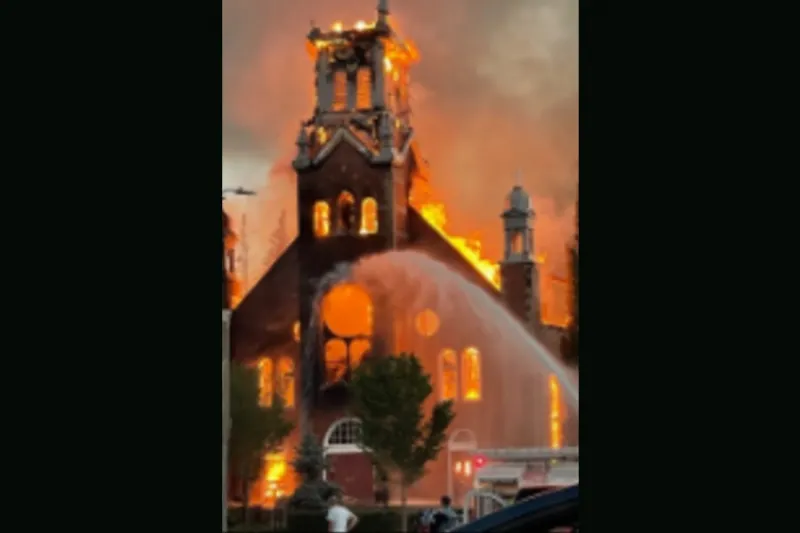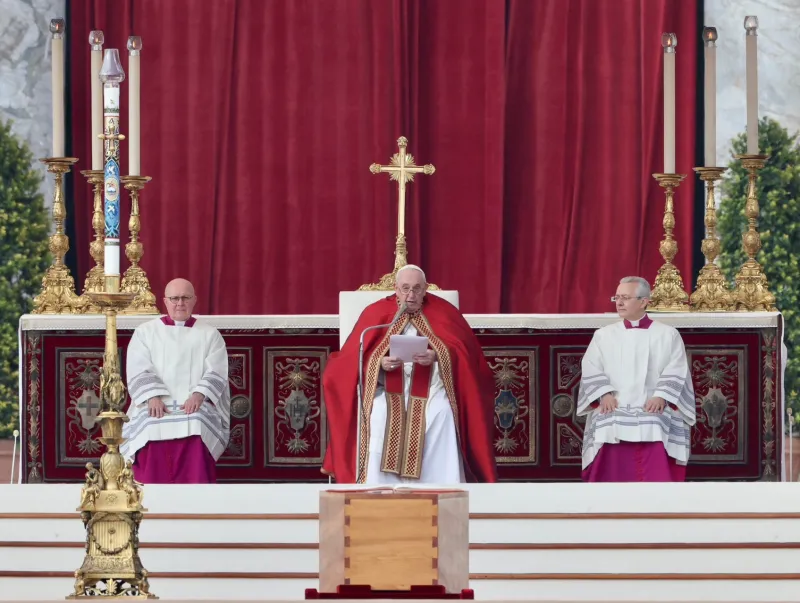
Edmonton, Canada, Jul 1, 2021 / 19:01 pm (CNA).
A First Nations leader in Alberta released a video plea on Wednesday decrying recent “suspicious” fires at Catholic churches throughout Canada.
In the 10-minute video, Treaty 8 Grand Chief Arthur Noskey spoke in both Cree and English, reading the definition of genocide as put forth by the Rome Statute of the International Criminal Court.
That definition includes “transferring children of a group into another group.” In Canada, indigenous children were forcibly removed from their homes and sent to residential schools, which were rife with abuse. Children at the schools were essentially stripped of indigenous culture and were punished for speaking their native languages.
Large unmarked graves have been recently discovered at the former sites of many residential schools. Catholic religious orders operated many of the residential schools, at the behest of the Canadian government.
Treaty 8 is one of 11 treaties signed by First Nations and the Crown. Treaty 8 included some–but not all–indigenous bands from parts of what are now the provinces of British Columbia, Alberta, Saskatchewan and a part of the Northwest Territory.
“Make no mistake. From what I just read, (the residential school system) was genocide on our people. This was to annihilate us, but we are still here. We still have a voice,” said Noskey.
“But in saying that, we are asking you as members, as the Nehiyaw and the Dene, and the communities, in your communities, where you have these churches, that we’re asking you to refrain from vigilante actions against the church buildings,” he said.
The Nehiyaw are also known as the Cree people.
Noskey noted that by burning the church buildings, whoever is responsible is possibly destroying a crime scene.
“We don’t want to destroy evidence,” he said. “And you know, these are crime scenes. There’s a lot of crime–crime against humanity, war crimes that were done as a people.”
In the video, Noskey assured Treaty 8 that work is being done by chiefs, elders, and survivors to “do it right” and properly investigate the former residential schools. He said there are 11 of these schools located in Treaty 8, plus day schools, hospitals, and “other areas of concern.”
“They are working together, they’re strategizing, they’re planning, that this is done right, that these locations are all identified, and that when they go to that ground-penetrating radar, that it’s done right for all of these schools and all the areas of concern,” said Noskey.
“Again, there are 11 schools, and I know adjacent to your reserves there are schools, and you want to,” said Noskey, clenching his fists. “You know, I even feel that way many times. We want to do something, right now, right away.”
“But not with a heart of anger or agitation,” he said. “Because in that, we will miss out on doing it right.”
Since June 21, eight churches in Canada–seven Catholic and one Anglican–have caught fire. Seven of the churches are located on tribal lands, and five were completely destroyed.
The Royal Canadian Mounted Police says these fires are “suspicious,” but has stopped short of calling them arson.
If you value the news and views Catholic World Report provides, please consider donating to support our efforts. Your contribution will help us continue to make CWR available to all readers worldwide for free, without a subscription. Thank you for your generosity!
Click here for more information on donating to CWR. Click here to sign up for our newsletter.






Leave a Reply